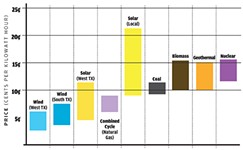The 'People's Court'
Pro-pot candidate enters JP race
By Jordan Smith, Fri., Feb. 7, 2014
The way attorney James Braxton Forrest sees it, Travis County's Justice of the Peace, Pct. 5, is a place not just to hash out old disputes, but a place to chart a progressive course for Austin's future.
He's not talking about making new court rules (per se), or about modernizing the court's website. Instead, Forrest looks at JP 5 and sees a place to take a stand – on a variety of issues, including racial profiling, marijuana legalization, and gay marriage.
Forrest is bringing these ideas to his first bid for public office, an attempt to unseat 14-year-veteran JP Herb Evans, whom Forrest will challenge in next month's Travis County Democratic primary; because there is no GOP contender, it is a contest that will, in effect, decide who takes the bench in the general election.
The county's five JP courts are, in essence, the "people's courts," where judges handle all manner of cases, including small civil claims and minor criminal infractions. Indeed, for JP 5, that includes adjudicating tickets handed out for a smattering of low-level criminal charges, including possession of small amounts of marijuana. Under a 2007 state law, police can opt not to arrest individuals found in violation of seven low-level nonviolent crimes, including pot possession. The law, known as cite-and-release, allows police to issue a citation for those infractions instead of making an arrest and booking a person into jail. And in Travis County, all such citations are processed through JP 5.
By all accounts, the law has been successful. In Travis County, the citation option has averted more than 21,000 individuals from jail, says Evans, including more than 5,000 in 2013. When you consider the time it takes police to arrest and then book someone into jail – Evans uses a modest estimate of 2.5 hours per arrest – in 2013 alone that meant saving 12,500 man hours, time that officers can spend on patrol. "That's a staggering number of hours," he said – indeed, it's the equivalent of putting six full-time officers on the streets.
But as Forrest sees it, keeping people out of jail is not enough. He says he would use his power to ignore marijuana-related tickets – allowing for the cases to be dismissed as a means to, in effect, legalize marijuana possession in Austin. "I think the country is moving toward [legalization] and I'd like Austin to be pushing for that," said the 38-year-old.
Forrest said he believes that minorities are too often profiled by police and are overrepresented even in minor criminal cases – and that although minor pot possession may be eligible for only a ticket, any conviction stays with a person and could cause collateral damage (with housing, employment, or education, for example) in the future. He believes that probable cause for each citation should be throughly vetted, and he questions whether Evans has done so. (Forrest said that while he would consider each charge on a case-by-case basis, the "presumption" would be "that I'm going to dump all" pot cases.)
"He's entitled to take his position," says Evans. But he disagrees that the job of JP should be used in this manner. "We have free speech in this country and I don't have any problem with that," he said. "I've taken an oath and I have a responsibility to the law and I can't pick and choose at my level what laws I want to enforce."
Indeed, Evans said that since cite-and-release passed the Lege in 2007, he's worked closely with all area law enforcement agencies to get buy-in for the law and to put in place the policies that have ensured its success. He agrees that minorities are overrepresented in the criminal justice system – "that's certainly true; it doesn't take a genius to figure that out," he said – but suggests Forrest's approach is naive. He's says he's worked hard for more than a decade to do what he can to improve the system – for example, by advocating, along with his colleagues, for the Austin Independent School District to handle truancy and other minor infractions within the district instead of sending kids to court (which is now happening, due to a policy change at AISD, he said). During his tenure in the court, "I've tried to figure out this job," he said. "I've thought about it and have tried to make improvements."
Forrest doesn't believe Evans has done enough and says that as JP he would push hard for social change – including holding a mass same-sex wedding outside the courthouse. He acknowledges that because gay marriage isn't legal in Texas, whatever ceremonies he performs would be symbolic, but feels that's important. "That symbolism is going to be amazing," he said. "It would be a dream come true."
Forrest says he knows his platform points may seem fringe – in addition to "legalizing" pot possession and promoting same-sex marriage, he also believes criminal charges for 18- to 20-year-olds in possession of alcohol should be eliminated – but he believes they're issues that resonate with Austin and its bohemian identity. "Same-sex marriage and legalizing weed. Why not?" he asks.
Got something to say on the subject? Send a letter to the editor.











